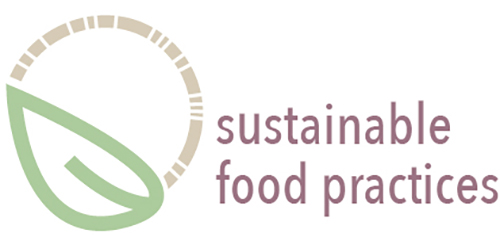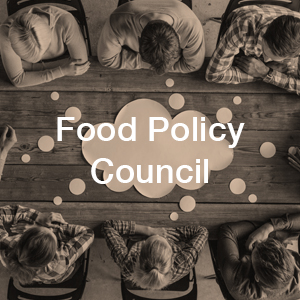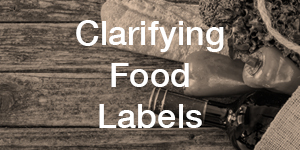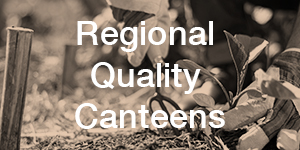
Food Policy Council
Dr. Rachel Reckinger (University of Luxembourg) and Norry Schneider (Centre for Ecological Learning Luxembourg – CELL) have been instrumental in the scoping out of a nation-wide, participative, Food Policy Council (FPC) for Luxembourg. The idea has been inspired by connecting with and visiting other such food policy councils in the neighbouring countries, and through engaging with food system stakeholders in Luxembourg. Such a council would also deliver on the intention embedded in the Luxembourg Accord de Coalition. Uniting all stakeholders within the food system will bring about innovation through constructive debates and teamwork and create a more socially and environmentally just, economically sound, high quality local food system.
Creation process and networking
Dr. Rachel Reckinger and Norry Schneider initiated the idea of co-creating a nation-wide transformative tool for political commitment: a Food Policy Council (FPC) for Luxembourg. The intention to create such a multistakeholder organism is also embedded in Luxembourg’s Accord de Coalition 2018-2023 : « Afin de créer des liens plus étroits entre l’agriculture et la société civile, la création d’un conseil de politique alimentaire et de clusters alimentaires sera soutenue » (p. 196).
In November 2018, Dr. Reckinger and Schneider attended the conference « 2. Vernetzungskongress der Ernährungsräte: Wege zur Ernährungsdemokratie » in Frankfurt am Main. They connected with existing FPCs from the QuattroPole (Trier, Metz, Saarbrücken, Luxembourg), as well as from several small and large cities as well as regions in Germany and beyond (Austria, Switzerland, The Netherlands).
As a political tool, the FPC stands out for its participative approach, its diversity and local adaptability as well as its extraordinary plasticity. It is supported at the level of the European Union by Prof. Dr. Olivier de Schutter, former UN Special Rapporteur for the Right to Food (2008-2014), and by the International Panel of Experts on Sustainable Food Systems (IPES-Food).
Some of their recent work has been based on a participative process culminating in a collective workshop uniting 250 experts (EU Food and Farming Forum (EU3F)), to contribute ideas for a Common Food Policy. Dr. Reckinger participated in this event. The subsequently published report “Towards a Common Food Policy for the EU” argues for a coherent policy, setting the direction of travel for the whole food system, by bringing together the various sectoral policies that affect food production, processing, distribution, consumption and governance, and by refocusing all actions on the transition to sustainability. Food Policy Councils are useful, territorial tools to achieve such goals in a collaborative governance mode.
Inspiration for the Luxembourgish nation-wide FPC is additionally taken from the book Genial Lokal. So kommt die Ernährungswende in Bewegung (https://www.oekom.de/buch/genial-lokal-9783962380557), presented at the Frankfurt conference by Valentin Thurn, one of the authors and founding member of Germany’s first Food Policy Council (https://www.ernaehrungsrat-koeln.de).
From early 2019, Dr. Reckinger and Schneider began a dedicated collaboration with Anna Wissmann, managing director of Taste of Heimat e.V. and FPC network coordinator. This collaboration consists of concrete guidance during the creation phase of Luxembourg’s FPC, and for assistance with the orientation of its priorities. Besides ongoing meetings and discussions with concerned Ministers and their respective staff members, Dr. Rachel Reckinger and Norry Schneider conducted a prospective study of food system stakeholders’ views for a future nation-wide Food Policy Council. In autumn 2019, they also organised a field trip to the Food Policy Councils of Cologne and Bonn with and for interested actors. As part of this field trip they conducted a preliminary survey with attendees. This opened up inspiring avenues both for Luxembourg-based interactions of the future Food Policy Council and for potential cross-border collaborations. Dr. Rachel Reckinger had the lead of two subsequent empirical surveys that were conducted, first in 2019 with food system professionals, and in 2021 with both food system professionals and citizens. In Summer 2020, Dr. Reckinger and Schneider published an article about the objectives of such a Food Policy Council for Luxembourg (more about the article can be found here).
The results of the first empirical study were presented in early 2021 at a conference on a resilient and sustainable food system for Luxembourg, co-organised by the Conseil Supérieur pour un Développement Durable (CSDD), the Oeuvre de Secours National Grande-Duchesse Charlotte and the association Infino (Initiativ fir Nohaltegkeet) in partnership with the University of Luxembourg. At the bottom of this page you can see Reckinger’s presentation from Infino.
Subsequently, the Food Policy Council survey was developed and extended. The Sustainable Food Practices team at the University of Luxembourg ran this second survey until September 30th 2021. The results of both surveys were analysed and published in a report in January 2022. You can read the full report and more information about the results here.
In summer 2021, there was some media exposure about the creation process of a nation-wide Food Policy Council (see here for some articles), and since then, the creation process has been embedded in a bill on a national Food Policy, which is currently under legislative scrutiny. More developments are to be expected soon.
Set-up of Luxembourg’s Food Policy Council
In short, the basic idea behind the world’s first national scale Food Policy Council is to unite stakeholders from three fields of the food system, with each of them forming one third of FPC members:
- Production, Transformation & Retail
- Policy & Administration
- Research & Civil Society.
Individual representatives of these three groups will be selected not primarily according to the proportional weight of their host institution or company within the national foodscape, but to their innovative ideas when it comes to constructive debates and team work, with the goal of co-creating a more socially and environmentally just, while economically sound, high-quality and local food system.
Individual representatives of these three groups will be selected not primarily according to the proportional weight of their host institution or company within the national foodscape, but to their innovative ideas when it comes to constructive debates and team work, with the goal of co-creating a more socially and environmentally just, while economically sound, high-quality and local food system.
Food Policy Council members will collaborate – in varying constellations according to their interest – in various pilot project, to which an open number of citizens are also associated if they have affinities with the projects.







